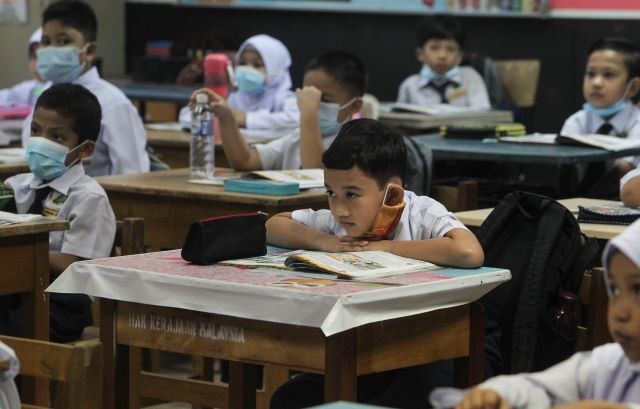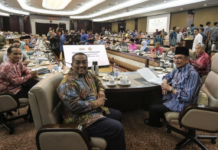KUNAK, Sept 13 — The Ministry of Education (MOE) is committed to addressing the issue of children missing out on education to ensure that all children in the country have access to equal education opportunities.
MOE, through state Education Departments, is constantly collaborating with various agencies and non-governmental organisations (NGOs) such as the Parents-Teachers Associations, National Registration Department, Royal Malaysia Police, state Religious Departments, Immigration Department and Social Welfare Department to look for the best solutions to tackle the issue and achieve zero school dropout rate.
In Sabah, various programmes are being implemented such as the Sabah Zero Student Dropout (OPSCIS) programme which was established in 2018 at 24 district education offices. It aims at increasing enrolment among children, children without documents and non-citizen children who are eligible to study at government schools and government-aided schools.
OPSCIS focuses on strategic consensus by involving parents, the community and the private sector in line with the direction of the seventh principle of the organisation’s strategic plan, Sepakat Sabah Hebat namely the percentage of student attendance. It also seeks to translate the fourth principle out of seven, stated by the ministry involving student dropout and the implementation of one-stop, high-impact and low-cost programmes.
According to Kunak District Education Officer Ab Malek Abdul Rahim, they are actively going to the ground to address the dropout issue among children in the district due to problems such as documentation.
“Recently we held the OPSCIS in Pekan Kunak where we met with parents and guardians to check their documentation. Most of them are having problems with their identification documents,” he told Bernama.
OPSCIS has brought 297 Malaysian children, 510 children without documents and 435 non-citizen children back to school since 2020.
He said the Kunak District Education Office is also collaborating with the National Registration Department, Sabah Religious Affairs Department (JHEAINS) and other relevant departments to check the documentation.
“We are trying to help the children to go to government and government-aided schools,” he said.
MOE is also paying attention to efforts to provide access to education for non-citizen and stateless children who are missing out due to poverty, status confusion, lack of direction and social problems.
Education Minister Fadhlina Sidek who visited Sabah under the Parliament follow-up programme aiming at securing education for children and non-citizen children last month said MOE is carrying out several approaches so that children facing documentation issues will not be left out of the country’s education ecosystem.
Fadhlina visited the Human Capital Development Centre (PPMI) in Kampung Kabog operated by a Sabah NGO, Pertubuhan Himpunan Lepasan Institusi Pendidikan Malaysia (Haluan). The PPMI is providing education to 179 non-citizen and stateless children.
Kunak PPMI coordinator Lajamuddi Lajahidi said another PPMI has been opened in Kampung Kunak Laut to teach 69 students who are mostly from the Pala’u (Sea Bajau) community.
“At PPMI, we conduct academic and religious learning. For academic learning, we use the existing MOE curriculum, but we lower the subject level to match the capability of the students who cannot enter mainstream schools. Meanwhile, for the religious subjects we use the Kafa (Al-Quran and Fardu Ain) curriculum taught to Year One to Year Six pupils. They sit for the Kafa special assessment test in Year Five and Sijil Rendah Ugama Negeri in Year Six.
“At Kabog PPMI we operate three classes (morning) for Year One to Year Three students and three classes in the afternoon combining children from Year One to Year Six,” he said.
According to Lajamuddi, they make efforts to help the community while assisting the government to deal with the school dropout issue.
He said demand is high but they must limit the intake due to the cramped classrooms.
“Some classrooms can only accommodate 25 students but currently there are classes that have up to 40 students,” he added.
He said PPMI was created in 2011 to give children of the Pala’u community access to education and prevent them from taking to the streets to become beggars. Many of the children are now getting their education at the Kunak Laut PPMI, he added.
Meanwhile, Kunak assemblywoman Norazlinah Arif said the collaboration between the district Education Office and Haluan to provide education to non-citizen and stateless children will help them lead a better life.



















